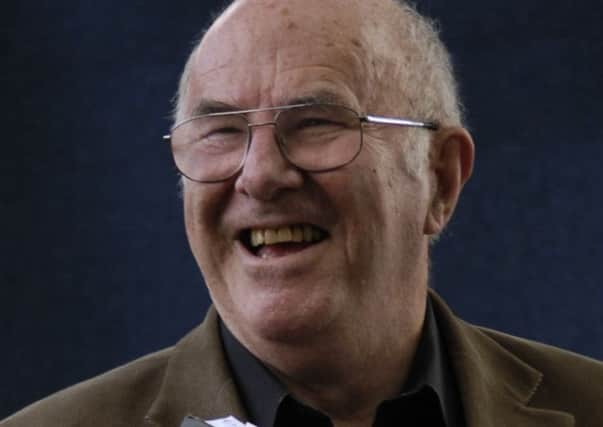Book review: Latest Readings by Clive James


Latest Readings
Clive James
Yale University Press, £16.99
WELL, this is poignant. Forty years almost to the day after I could reasonably claim that Clive James got me into this profession, I’m handed a copy of what might very well be his final book and asked if I can write 600 words on it.
Six hundred? Are you sure you don’t want 6,000? For a while I wanted to be John Rafferty, The Scotsman’s venerable football correspondent, front-row seat for all the big games. Then I wanted to be Charles Shaar Murray, on the road with wild rock’n’rollers for the New Musical Express. But more than anything I wanted to be as witty as James, reviewing TV for The Observer.
Advertisement
Hide AdEarly on, shamefully, I ripped him off, claiming his lines as my own. “Little lemon smile” was one. James said this of Harry Carpenter, straining to “fill” when Wimbledon was rained off. When play resumed, James described a thrilling match as being “the most exciting since Henry VIII slugged it out for five sets with Dan Maskell”. I’ve used that one a lot and these days I always credit him as the originator and imagine his eyes crinkling in confirmation of another zinger.
And that was simply James on tennis. You should have read him on Dallas. I loved it when he’d liken an overheated drama – “More gloop from the schlock-hopper” – to one of the classics, only with stetsons, or haulage trucks or cross-channel ferries. It made me want to seek out the original, though I rarely did. James has worn his knowledge lightly. He’s hung around lowbrow, looking for unintentional laughs, but he really knows his highbrow, as Latest Readings reminds us.
James has been diagnosed with leukaemia and sooner or later it will be the death of him. His publishers suggested he write about what he’s reading in the time there is left but he was way ahead of them and already much preoccupied with favourite books, bucket-list books, books he knows off by heart but can’t resist. He says: “The childish urge to understand everything doesn’t necessarily fade when the time approaches for you to do the most adult thing of all: vanish.”
He’s incorrigible. On page two he’s telling us that, having been moved by his family from London to Cambridge, where his library was installed in a house of its own, half his books had to be sold off “just to create some breathing space”. He adds: “I made a vow to myself and all concerned that my book-buying days were over.”
But by page 67, having remembered how “traumatically boring” he found CP Snow in his student days in Sydney and rating him inferior to Anthony Powell in writing about the epic sweep of British society, he’s spotting Snow’s novels at a secondhand stall and confessing: “I can just see the moment – though I slightly dread it – when I start assembling a set.”
He’s brilliant on the big beasts like Hemingway (“You would swear that he had arm-wrestled German submarines into submission”) but also shines a light on Osbert Lancaster, who I know and love from his cartoons of hard-up aristos but not his fiction. In hospital, lying on a sweat-soaked sheet, James re-evaluates Conrad. He wonders, hopefully: “When is an extra bookshelf not really an extra bookshelf?” Scottish writers figure hardly at all and somewhat less than glowingly – Sir Walter Scott was “not very funny” – but on this occasion, who cares?
Advertisement
Hide AdI’ve been lucky enough to interview James on a few occasions. The last time we met, when he was in good health, he said: “My obituaries will probably read ‘Schwarzenegger Man Dies’ because I once likened Arnie to a brown condom full of walnuts.”
This won’t happen, of course, but that was yet another funny line.